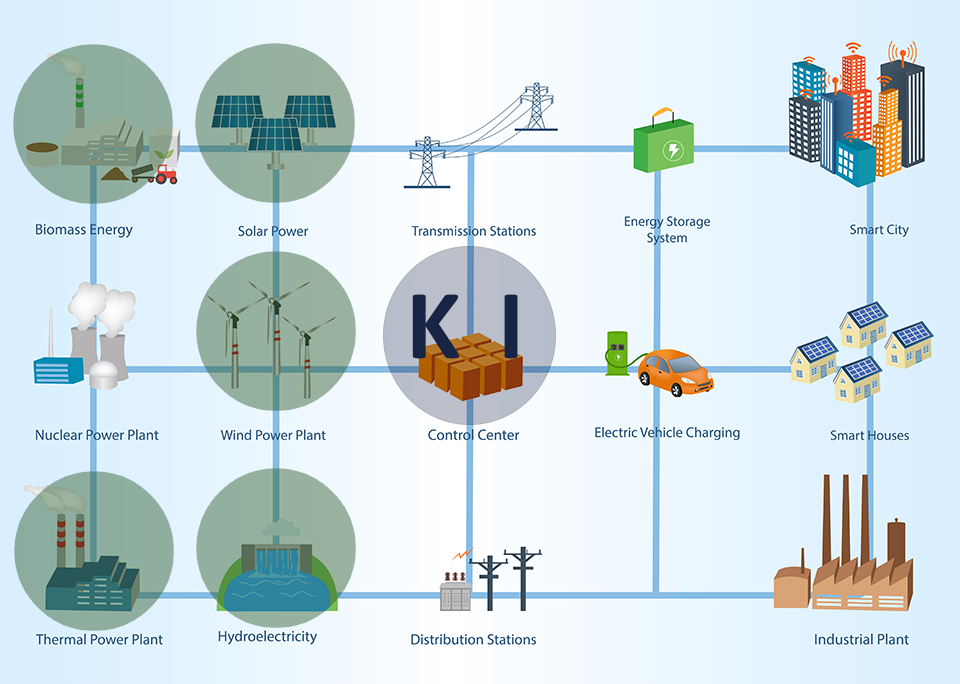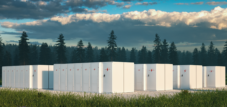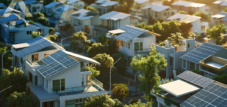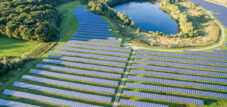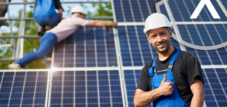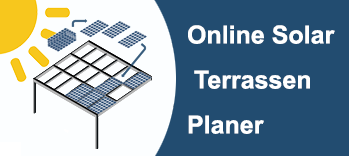Renewable energies & solar: Prevent impending network overloads through expansion – the economy and private households are affected
Language selection 📢
Published on: October 22, 2023 / update from: October 22, 2023 - Author: Konrad Wolfenstein
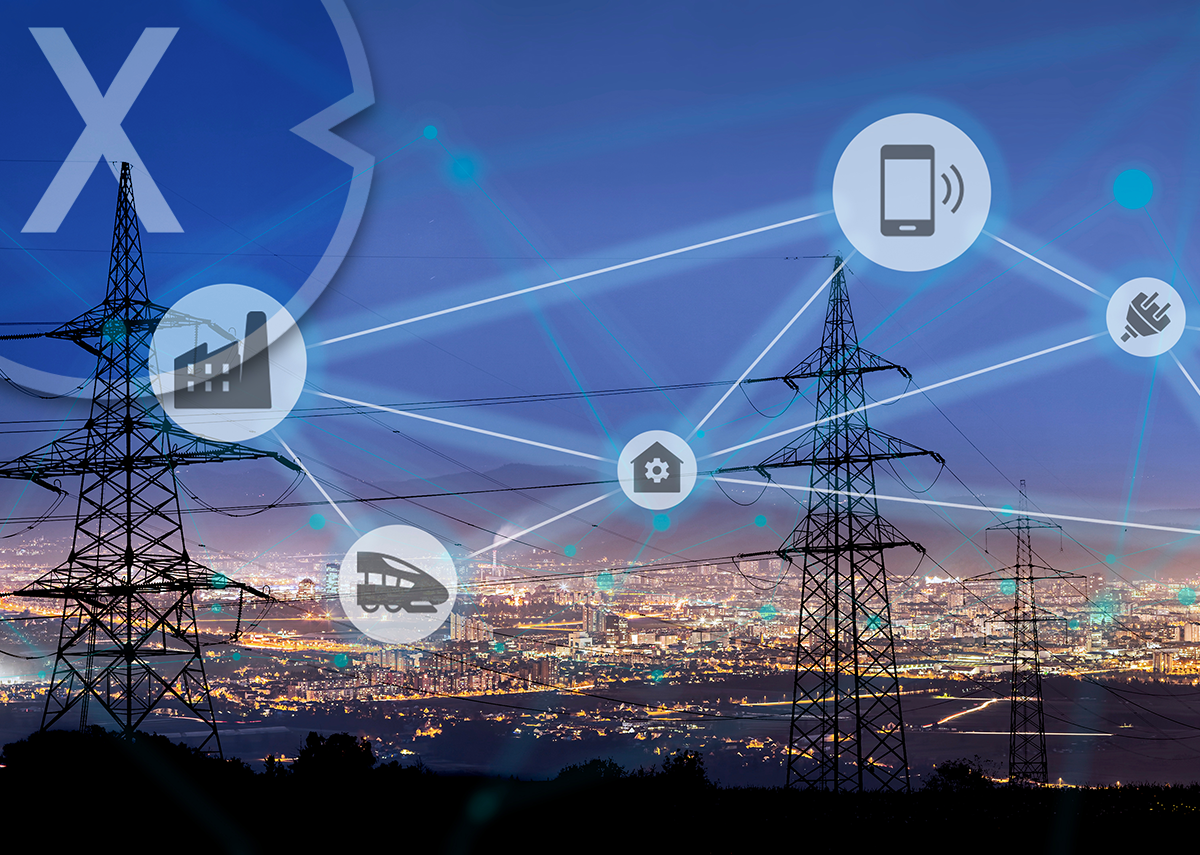
Renewable energies & solar: Prevent impending grid overloads through expansion – Image: Xpert.Digital
🔌🏡 Challenges in power supply 💡
The current and future power supply faces new challenges. With the growing use of renewable energies, particularly solar energy, the strain on the power grid is becoming more and more noticeable. This means that in some cases excess electricity generated by solar systems cannot be fed into the grid. The cause lies in the overload of the existing energy infrastructure network.
💡 Increase in electricity consumption in private households
The increase in electricity consumption in private households is a key factor in this development. The increasing spread of internet-enabled devices, smart home technologies, electromobility and heat pumps is leading to a steady increase in electricity consumption. As a result, many consumers are starting to think about producing their own electricity in order to cope with rising costs and at the same time contribute to sustainability.
💡 Challenges in implementation
The idea of feeding excess self-generated electricity into the grid in order to sell it or offset it against your own electricity costs sounds tempting. However, many households and solar system operators encounter challenges when implementing this concept. A key difficulty is that not all power grids have been updated to meet the demands of modern energy production and distribution.
🌍 A nationwide problem
The situation is by no means an isolated case, but a nationwide problem. The current infrastructure of the power grids is not sufficiently prepared for the ambitious goals of the traffic light coalition for the energy, heat and mobility transition. This has led to even large energy supply companies such as E.ON pointing out the need for a comprehensive expansion of the energy infrastructure.
💰 Significant investment required
Significant investments are required to make the network fit for the future. E.ON, for example, is planning to invest 26 billion euros in network infrastructure by 2027, with the majority of these funds being invested in Germany. Investments in the three-digit billion range are expected by 2045. These huge sums illustrate the scale of the problem and the need for comprehensive modernization.
🔌 Dedicated energy supply companies
Other energy supply companies such as the EnBW Group are also showing a strong commitment to network expansion. EnBW is currently investing around two billion euros per year in expanding the electricity network, with half of these funds going into the regional distribution network. This represents a significant increase compared to the past and shows the pressure being placed on energy companies to adapt infrastructure.
🏭 Substations and lines
Another example is the subsidiary Netze BW, the largest distribution network operator in Baden-Württemberg. It is faced with the challenge of expanding almost all of its more than 300 substations in the future and building a double-digit number of new substations. This illustrates the enormous amount of work required to prepare the power supply for increasing demands.
🌬️ Relevant to various renewable energy sources
Modernizing the energy infrastructure includes various measures. This includes the construction of new lines, the installation of transformers and the expansion of substations. These measures are necessary in order to efficiently distribute the increasing amount of renewable electricity and integrate it into the existing grid.
🌞 Key to the energy transition
It is important to emphasize that the development of energy infrastructure is relevant not only for the integration of solar power, but also for other renewable energy sources such as wind energy and hydropower. Creating a resilient and sustainable energy infrastructure is crucial to successfully implementing the energy transition and ensuring a sustainable energy supply.
🔌 Technological advancements
The current situation in the area of energy infrastructure shows that the expansion of renewable energies and the adaptation of the energy infrastructure must go hand in hand. This is the only way to ensure that self-generated electricity from solar systems and other renewable sources can be used efficiently and fed into the grid. This is a crucial step on the way to a sustainable and climate-friendly energy supply.
💻 Modern technology and decentralized energy production
The modernization of the energy infrastructure includes various measures that go beyond the investments by energy supply companies already mentioned. This includes integrating modern technology, such as smart grids and digital control systems, to better manage the flow of energy and minimize bottlenecks. These technological advances are critical to increasing the stability and efficiency of the power grid.
🏡 Decentralized energy generation
In addition, decentralized energy generation is playing an increasingly important role. Smaller distributed systems, including private solar and wind turbines, help reduce the load on the central power grid. These decentralized systems can store excess electricity or use it locally, reducing dependence on the overloaded grid.
🤝 Collaboration for the energy transition
The energy transition also requires increased collaboration between energy suppliers, governments and industry to develop a coordinated strategy for expanding renewable energy and modernizing energy infrastructure. This includes creating incentives for investment in renewable energy and promoting research and development in this area.
🔌 A sustainable and reliable power supply
Electricity supply faces challenges triggered by the growth of renewable energy and increasing household electricity demand. The solution lies in a comprehensive modernization of the energy infrastructure and increased use of decentralized energy generation to ensure a sustainable and reliable power supply for the future.
📣 Similar topics with Emojis:
- 🌞 The solar energy revolution: challenges and opportunities
- 💡 Electricity consumption is changing: smart home technologies and electromobility
- 🏗️ The expansion of the energy infrastructure: investments and modernization
- 🔄 Sustainable energy supply: The importance of renewable energy
- 🌐 The future of the power grid: intelligent technologies and decentralized energy generation
- 💰 Sales of electricity from private systems: hurdles and opportunities
- 🇩🇪 Germany on the way to the energy transition: challenges and solutions
- 🌍 Global Energy Challenges: A Look at the World's Infrastructure
- 🤝 Collaboration for the energy transition: government, industry and utilities
- 🚀 The energy supply of the future: sustainability and efficiency
#️⃣ Hashtags: #Energyinfrastructure #RenewableEnergy #Power supply #Sustainability #Energytransition
Artificial intelligence in the field of renewable energies - article from 2020
It was 33 years ago when I came into contact with the still young discipline of “artificial intelligence” (AI). I worked on the AI programming languages LISP and Prolog. I also came into contact with the Internet through the university network. At the same time, the satellite television market was booming. From here I continued to develop in the area of intralogistics until I ended up in photovoltaics today.
More about it here:
🔌🏭 Challenges in the energy industry 🌞 📊
There are also increasing challenges in the economy and industry when feeding in the electricity generated. This has a significant impact on the overall planning, calculations and planning security of companies in the energy sector.
☀️ Decentralized energy generation
The increasing use of renewable energy, including solar and wind power, has led to companies generating more electricity on their own. This decentralized approach offers advantages in terms of sustainability and independence from traditional energy sources. Companies can reduce their energy costs and reduce their environmental footprint.
⚡️ Challenges of decentralized energy production
However, this decentralized energy generation also comes with challenges. One of the main problems is how to efficiently feed the electricity generated into the grid. This requires careful planning and coordination to avoid bottlenecks in the power grid.
🌐 Technological innovations for smart grids
To meet these challenges, technological innovations are required. Modern smart grids enable more intelligent control and distribution of electricity. They use advanced technologies such as IoT (Internet of Things) and data analytics to optimize energy flow and facilitate the integration of renewable energy.
🔋 Storage of excess electricity
Another key issue is the storage of excess electricity. Companies must find solutions to store energy during times of low demand and release it again when needed. Battery storage systems and other energy storage technologies are therefore becoming increasingly important.
🏭 Electrification of industry
The increasing electrification of industry, especially in the area of electromobility, also increases the need for reliable power supply. Companies must ensure that they have enough electricity available for their production processes and the operation of electric vehicles.
🏗️ Infrastructure investments
Another dimension of this problem concerns infrastructure. Existing power grids may need to be expanded and modernized to meet growing industrial needs. This requires significant investment and close collaboration between energy suppliers and companies.
🔌 Innovation & Investment
Business and industry are faced with the challenge of using the electricity they generate efficiently and feeding it into the grid. This requires technological innovation, investment in infrastructure and close cooperation between different players in the energy sector. Successfully addressing these challenges will be crucial to ensuring a sustainable and reliable energy supply for the future.
📣 Similar topics
- The future of decentralized energy generation ⚡
- Smart Grids: Intelligent power distribution 💡
- Challenges and opportunities in the energy transition 🌍
- Battery storage: key to energy storage 🔋
- Electrification of industry: electricity demand is increasing 🏭
- Infrastructure investments in the energy sector 🏗️
- Sustainability in corporate energy supply 🌱
- Technological innovations for efficient energy integration 🚀
- Energy planning and coordination in industry ⚙️
- Cooperation in the energy sector: ways to solve the challenges 🤝
#️⃣ Hashtags: #Energy Generation #SmartGrids #Energy Transition #Battery Storage #Electrification #Infrastructure Investment #Sustainability #Technology #Energy Planning #Collaboration
Infrastructure Electricity Highway: Grid expansion and the energy transition – shaping and expanding a sustainable future
The energy transition in Germany has the potential to pave the way to a climate-neutral future. Network expansion plays a central role here. With a strong and intelligent grid, renewable energy can be used and distributed more efficiently.
More about it here:
More speed for electricity network expansion: The need for an expanded network - especially for renewable energies
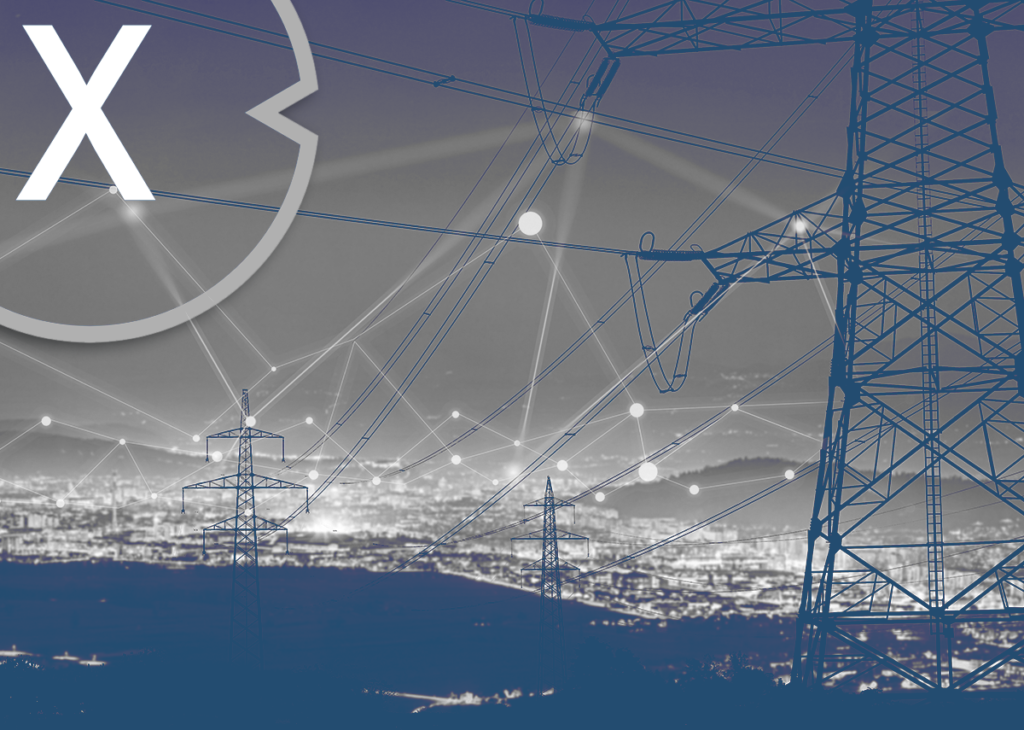
More speed for power grid expansion - electricity for everyone - especially for renewable energies - Image: Xpert.Digital
“We must work together to ensure faster network expansion. We need thousands of kilometers of additional power grids over the next two decades. These must be planned, approved and built as quickly as possible,” said Federal Economics Minister Robert Habeck at the opening ceremony for the converter construction for the “SuedLink” at the Leingarten substation near Heilbronn.
More about it here:
Plan your solar system for the most common applications conveniently online with our solar system planner!
With our user-friendly solar system planner you can plan your individual solar system online. Whether you need a solar system for your home, your business or for agricultural purposes, our planner offers you the opportunity to take your specific requirements into account and develop a tailor-made solution.
The planning process is simple and intuitive. You simply enter relevant information. Our planner takes this information into account and creates a tailor-made solar system that meets your needs. You can try out different options and configurations to find the optimal solar system for your application.
Additionally, you can save your plan to review later or share with others. Our customer service team is also available to answer your questions and provide support to ensure your solar system is optimally planned.
Use our solar system planner to plan your individual solar system for the most common applications and advance the transition to clean energy. Start now and take an important step towards sustainability and energy independence!
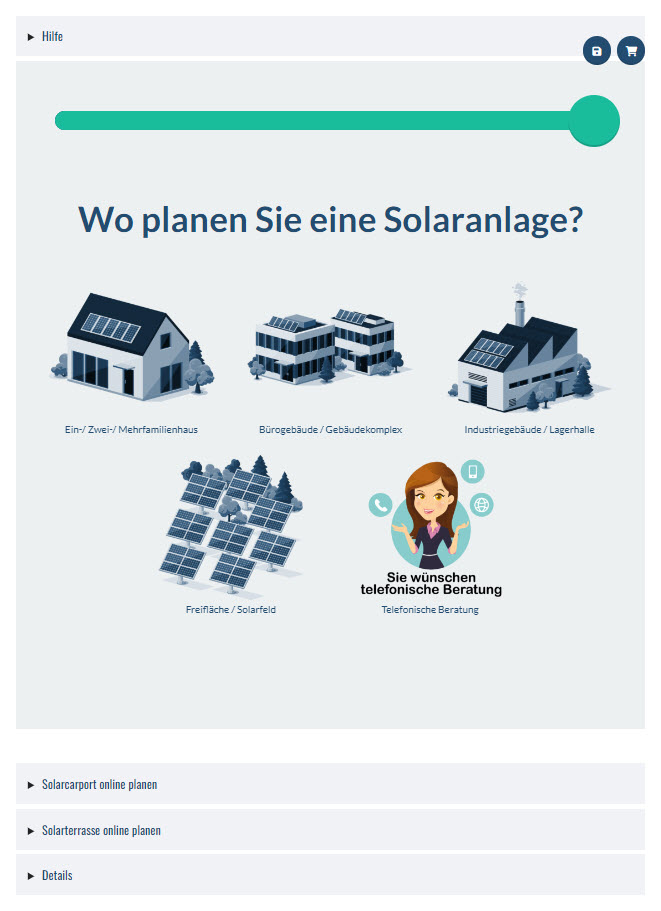
The solar system planner for the most common applications: Plan the solar system online here - Image: Xpert.Digital
More about it here:
We are there for you - advice - planning - implementation - project management
☑️ Expert advice on energy-efficient renovation and new construction
☑️ with solar solutions and heat pumps/air conditioning systems
I would be happy to serve as your personal advisor.
You can contact me by filling out the contact form below or simply call me on +49 157 30 44 9 555 .
I'm looking forward to our joint project.
Xpert.Digital - Konrad Wolfenstein
Xpert.Digital is a hub for industry with a focus on digitalization, mechanical engineering, logistics/intralogistics and photovoltaics.
With our 360° business development solution, we support well-known companies from new business to after sales.
Market intelligence, smarketing, marketing automation, content development, PR, mail campaigns, personalized social media and lead nurturing are part of our digital tools.
You can find out more at: www.xpert.digital - www.xpert.solar - www.xpert.plus



